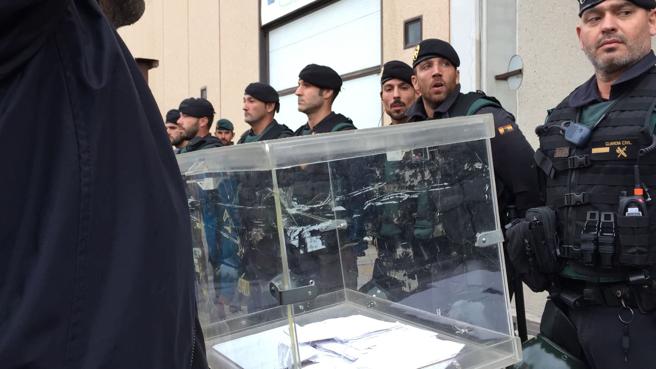Catalonia is an autonomous community in Spain’s northeast, bordering France and the Mediterranean Sea, Barcelona its capital and largest city.
In November 2015, Catalan lawmakers approved a secession plan from Spain by 2017. October 1 is the moment of truth, Catalans to vote by referendum on whether to remain part of Spain or secede, establishing an independent state.
Self-determination is a universal right. It’s a core principle of international law, enshrined in various treaties, affirmed in the UN Charter and International Covenant on Civil and Political Rights (ICCPR).
The following characteristics are necessary to qualify a nation-state status:
- a determinable territory, fixed or otherwise;
- a fixed population;
- a functioning government; and
- the capacity to engage in relations with other states.
Approval by the Security Council and General Assembly requires the following conditions. The aspirant must be a state, peace-loving, willing to accept the UN Charter’s obligations, be able to carry them out, and be willing to do it.
Catalonia qualifies on all counts. It’s legally entitled to declare its sovereign independence from Spain. It’s for Catalans alone to decide, no one else.
Spanish Prime Minister Mariano Rajoy has other ideas, enforcing police state harshness on the community.
On Wednesday, leading Catalan officials were arrested, an illegal intimidation effort to prevent the scheduled October 1 vote. Catalan Vice President Oriol Junqueras tweeted: “They are attacking the institutions of this country and attacking the citizens. We will not allow it.”
Catalonia’s Minister of Labor, Social Affairs and Family Dolors Bassa tweeted “a state of siege” exists.
Catalonian President Carles Puigdemont called Madrid’s actions “totalitarian.” Despite warnings to cancel the October 1 vote, he vowed it’ll be held.
Not easily with thousands of Spanish police ready to swoop in and halt things. Reportedly 10 million ballots were seized.
Whether in favor or against independence, tens of thousands of Catalans took to the streets, chanting “(w)e want to vote,” and “democracy.”
Spain’s state prosecutor opened a criminal investigation, targeting hundreds of Catalan mayors for cooperating with referendum plans.
In a 2014 referendum, 80% of Catalans voted for independence. Madrid declared the election invalid and unconstitutional.
On Thursday, Spanish police raided the headquarters of the pro-Catalan CUP independence party. An eight-hour standoff followed, part of police state repression to prevent the October 1 vote.
The harder the Madrid regime cracks down, the more determined most Catalans may become to free themselves from its repression.
Turmoil is likely continue for days. Speaking to reporters, Catalonia’s foreign affairs chief Raul Romeva said “(t)he issue…isn’t independence or not, but democracy in Spain and the EU” or tyranny, the Rajoy regime opting for the latter.
